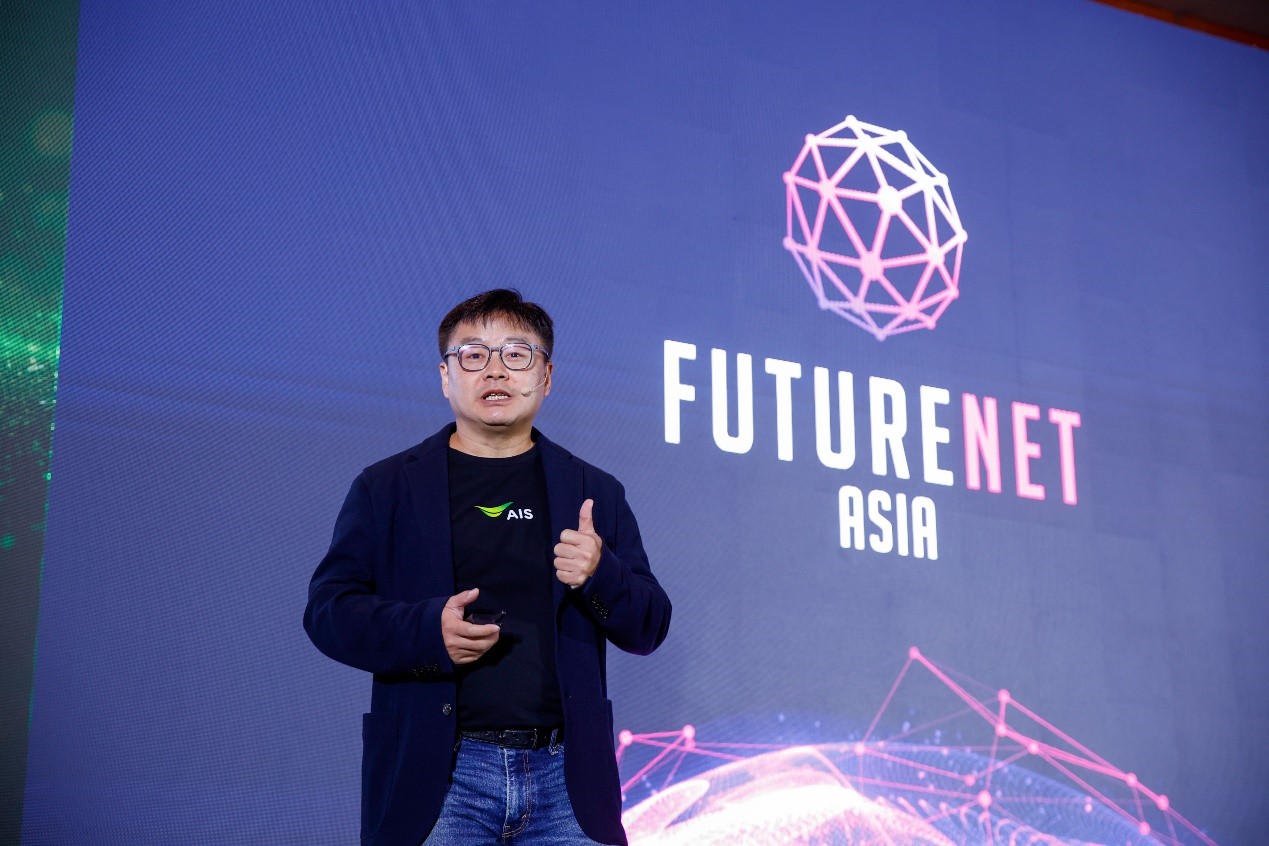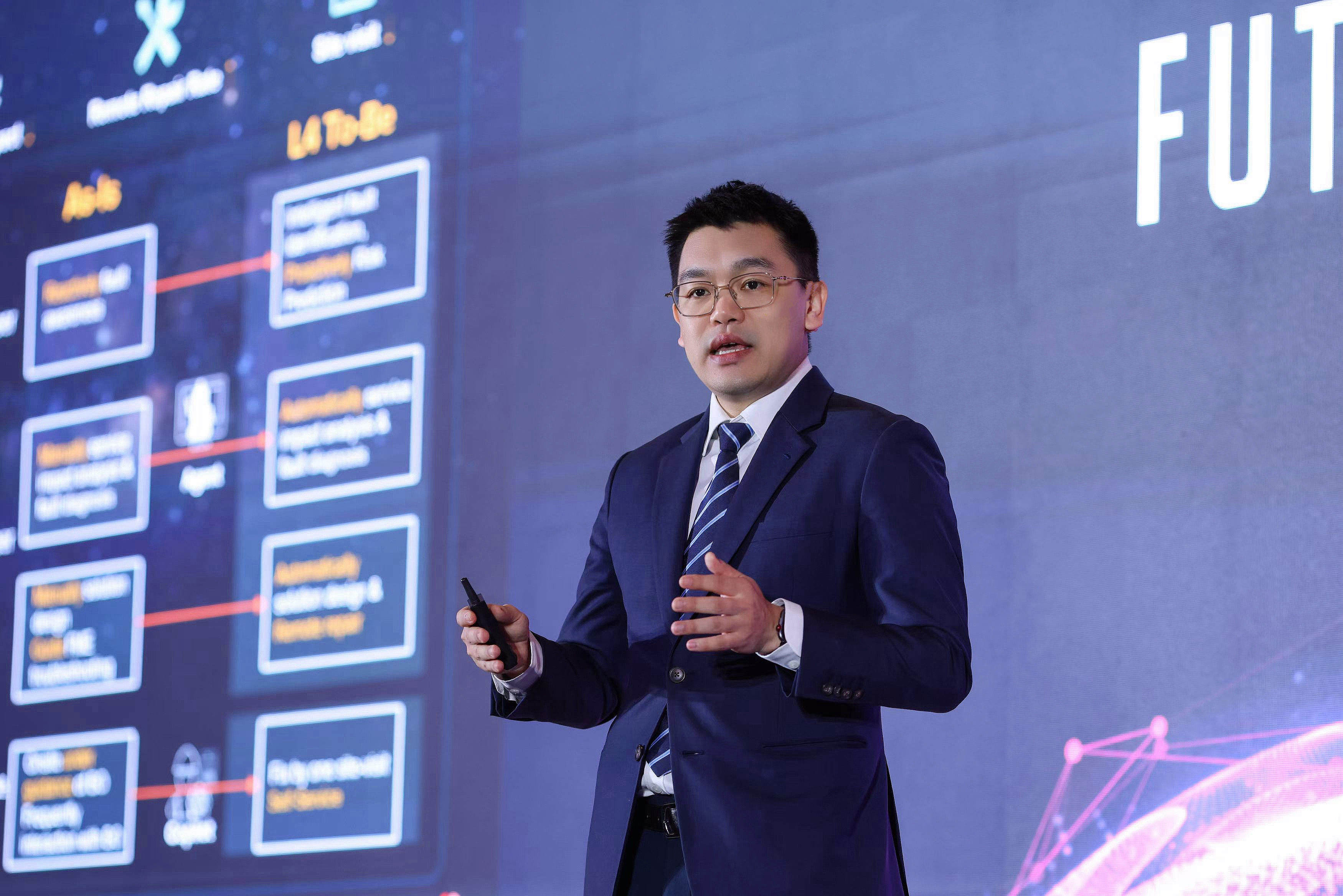Futurenet Asia 2025 AIS Thailand EVP & Huawei APAC ICT CMO:Paradigm and Practice of Moving towards Autonomous Networks L4
Sep 17, 2025
[Singapore, September 17, 2025] FutureNet Asia 2025 Summit was held in Singapore. Mr.Wasit Wattanasap, Head of Nationwide Operations and support Business Unit of AIS Thailand, and James Zhang, Huawei's Asia-Pacific ICT Chief Marketing Officer, attended the summit and delivered a keynote speech on " Paradigm and Practice of Moving towards Autonomous Networks L4".

Mr.Wasit Wattanasap's Speech, Head of Nationwide Operations and support Business Unit of AIS Thailand
AIS Thailand is a leading regional telecom carrier, dedicated to transforming from a traditional telecom service provider to a high-tech company that integrates digital life. In 2022, AIS Thailand incorporates Autonomous Networks(AN) into its Cognitive Tech-Co strategy and initiates systematic practices, aiming to provide personalized and distinctive user experience through technological innovation and intelligent network construction. and empower digital transformation of various industries in Thailand.
In his presentation, Mr.Wasit, H-NOS of AIS stated:
In 2024, AIS has achieved Level 3 in two high-value scenarios: fault management and customer complaint management. It has obtained the industry's first official certificate of TM Forum and greatly improved customer experience and O&M efficiency. Starting from the second half of 2024, AIS and Huawei have started L4 innovative research and practice by referring to the TM Forum AN Framework. AIS uses technologies such as digital twins and telecom foundation model to reconstruct the system architecture and build AI agents, including: Fault management, customer complaint management, network energy consumption management, new AI calling, and personal service experience assurance management Agents, significantly improve customer experience, network resilience, network sustainability, O&M efficiency, and enable new service development. In addition, AIS has contributed AN level assessment, effectiveness assessment, and L4 practice cases in high-value scenarios to industry standards for four consecutive years, winning high recognition from industry. AIS won five Catalyst innovation awards at the DTW in June 2025.
AIS hopes to work with world-leading industry partners such as Huawei to accelerate the achievement of the L4 target by 2025 and use digital technologies such as AI to continuously improve people's lives and businesses.

James Zhang's Speech, ICT CMO, Huawei APAC
James Zhang, ICT CMO, Huawei APAC, said in his speech:
The implementation of AN faces three challenges: how to select the starting scenario, how to continuously improve the AN level, and how to scientifically evaluate the effectiveness to achieve closed-loop business. Based on his cooperation experience with China Mobile and AIS Thailand, he systematically summarized and shared L4 practice paradigms and cases, providing reference implementation paths and solutions for the industry.
- L4 evolution should focus on high-value scenarios: Scenarios with high business value, high technical readiness, high frequency, or high energy consumption should be selected. TM Forum has defined 20 L4 high-value scenarios, covering network-layer troubleshooting, optimization and change, and service-layer complaint and experience assurance.
- L4 Solution Package becomes an important reference for AN practices: Target state (process) design is critical in the process of moving towards Level 4. TM Forum released the Solution Package IG15XX series standards, which mainly include the L4 target state design reference for high-value scenarios. The standards provide guidance for operators to build their own L4 target state for high-value scenarios and guide equipment vendors to build new L4 capabilities. For example, in fault management scenarios, L4 leverage AI agents to replace the traditional NOC center to implement automatic fault diagnosis and rectification. Copilot guides FMEs to perform onsite operations.
- L4 business value measurement, supporting management to fulfill their commitments to the Board: TM Forum proposed the KEI effectiveness evaluation framework, including KCI (capability indicator), KEI (effectiveness indicator), and KBI (business indicator). The whole set of index system is decomposed from top to bottom, and the bottom index can be quantified to the final commercial value through formula. This framework is an important tool for technical teams to communicate efficiently with CXOs.
James Zhang also shared Huawei's Autonomous Driving Network (ADN) L4 solution, saying that it will upgrade the build in intelligent hardware and telecom foundation model 2.0 in all fields. Huawei launched the role-oriented Mate series intelligent Copilot and scenario-based Spirit series intelligent Agent in the maintenance, optimization, and operation fields, helping carriers achieve single-domain autonomy and enable cross-domain collaboration. Huawei looks forward to working with global industry partners to accelerate the full implementation of L4 Autonomous Networks.